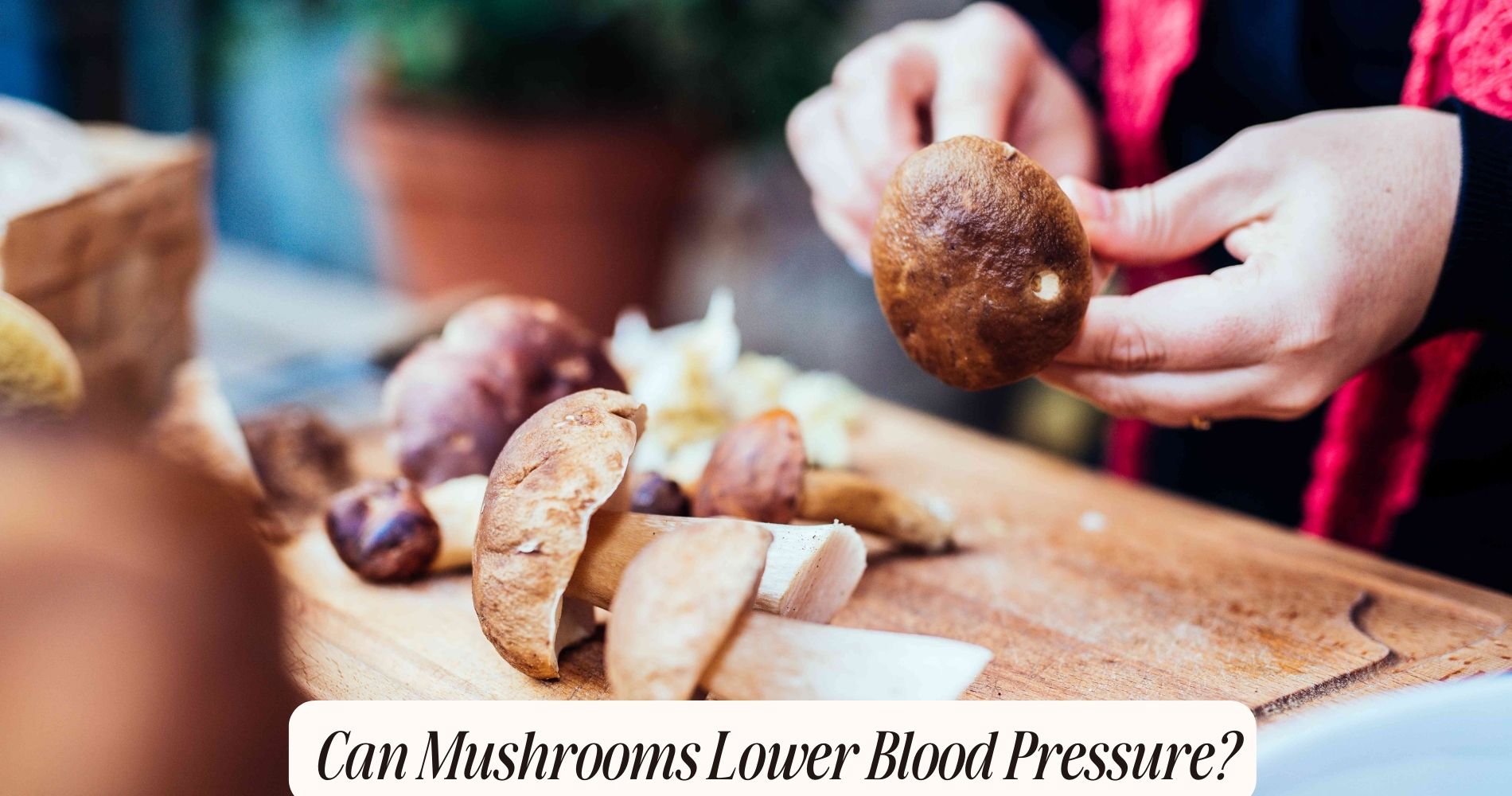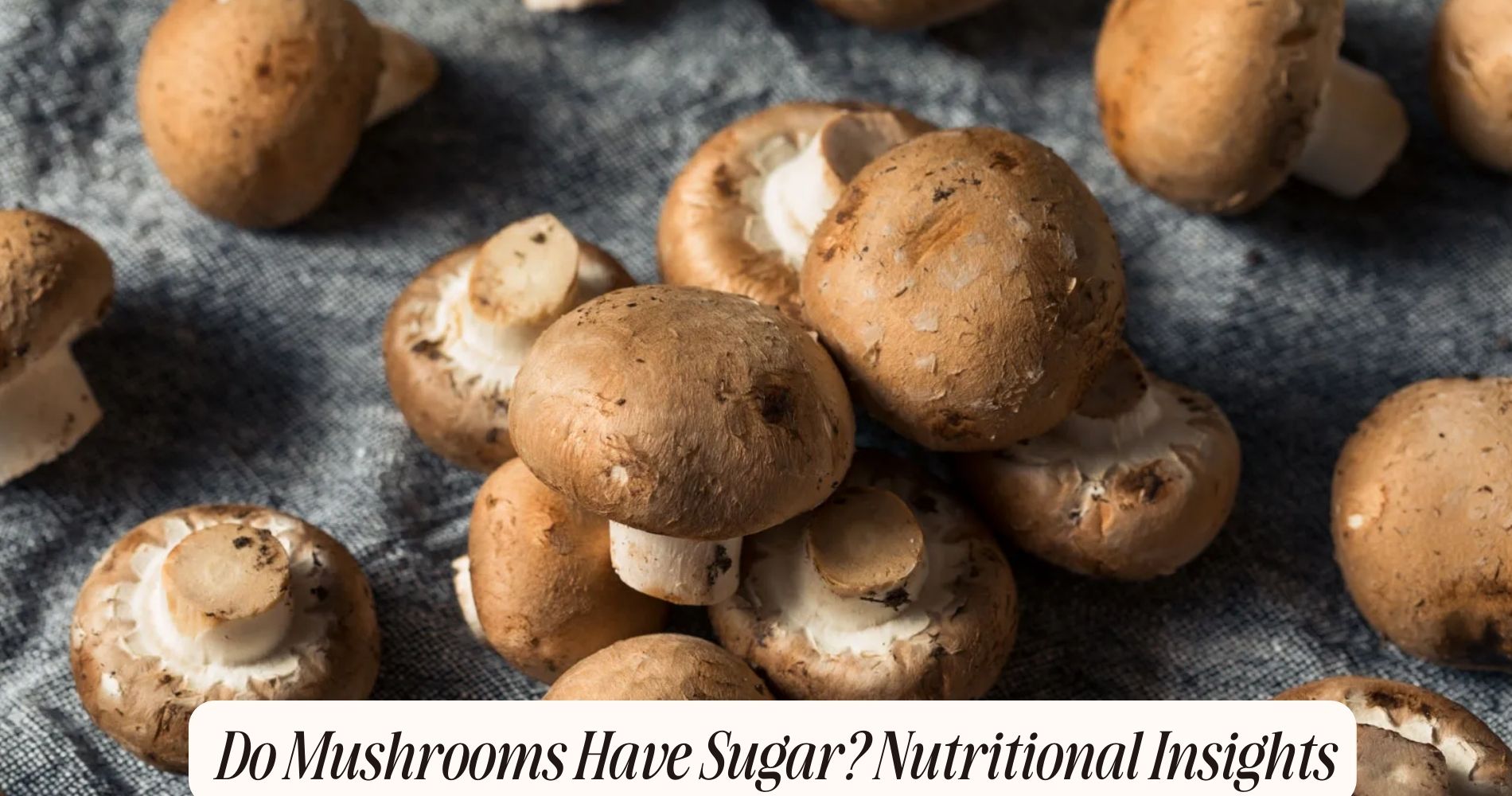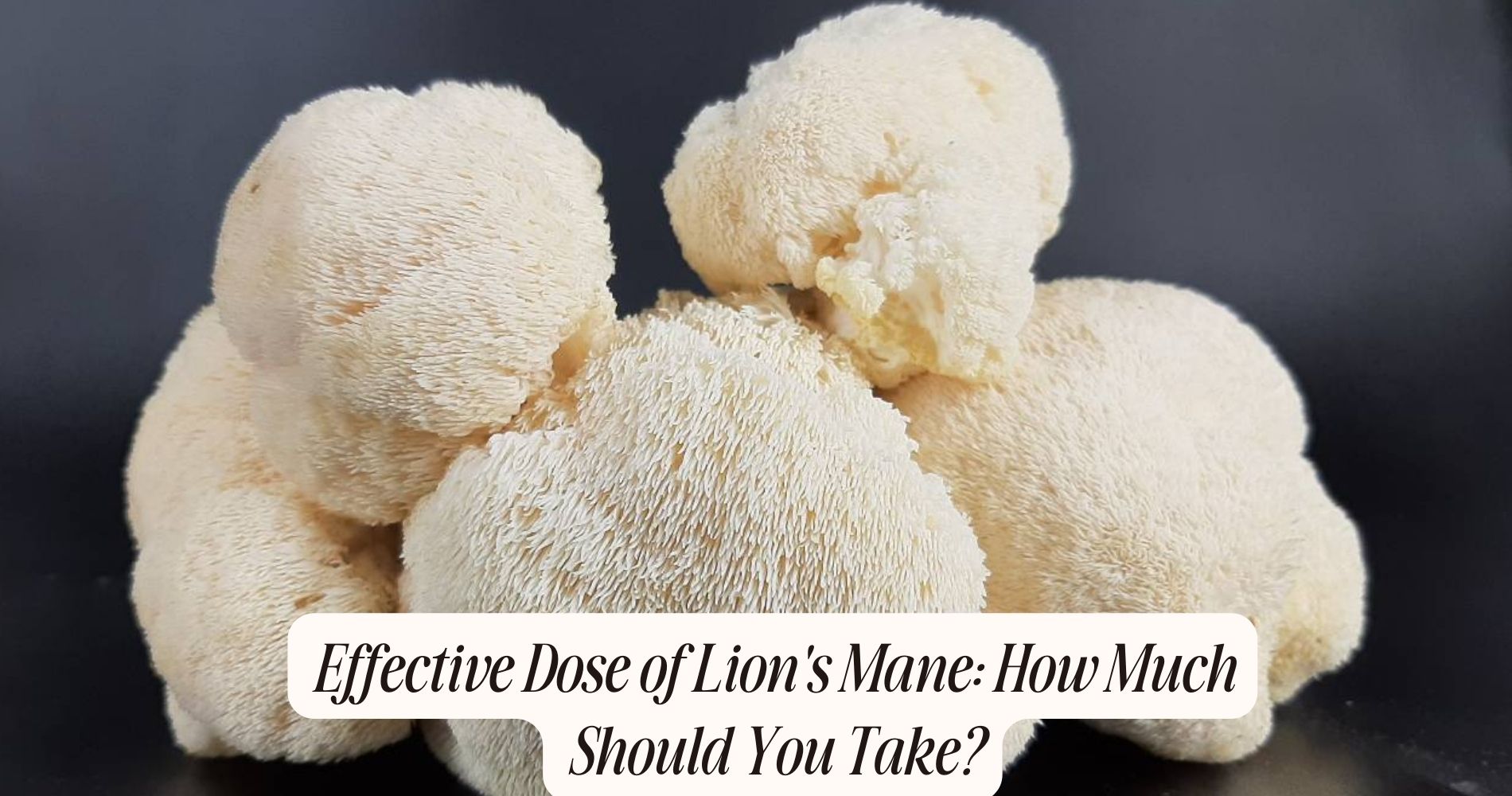
Can Mushrooms Lower Blood Pressure?
Can mushrooms lower blood pressure? Yes, you can lower your blood pressure by incorporating mushrooms into your diet. Mushrooms like shiitake and reishi contain bioactive compounds such as polysaccharides and triterpenes that inhibit ACE, aiding blood pressure regulation. They're rich in potassium, known for its blood pressure-lowering effects, and antioxidants like ergothioneine that reduce oxidative stress.
The dietary fiber in mushrooms helps maintain healthy blood pressure and improves cholesterol profiles. Including mushrooms like maitake and oyster in your meals can benefit your cardiovascular health even more. To get the full picture of how mushrooms can support your heart health, discover further insights.
The Science Behind Mushrooms
Scientific studies have shown that mushrooms contain bioactive compounds that can impact various physiological processes in the body. Over centuries, different mushroom types have been utilized in traditional medicine worldwide.
For instance, Reishi mushrooms, known as Ganoderma lucidum, have a rich history in Asian cultures for their supposed health benefits. Similarly, Shiitake mushrooms, or Lentinula edodes, have been used in China for over 1,000 years, primarily for their immune-boosting properties.

Modern scientific research has begun to validate these traditional uses. You'll find that mushrooms like Reishi and Shiitake are packed with polysaccharides, triterpenes, and other bioactive compounds. These substances can modulate immune responses, exhibit anti-inflammatory properties, and affect cardiovascular health.
By examining these mushroom types under controlled conditions, researchers have discovered that these compounds can inhibit angiotensin-converting enzyme (ACE), which plays a critical role in blood pressure regulation.
Moreover, mushrooms like Maitake and Oyster have shown potential in reducing hypertension in animal studies. Understanding the long history and diverse types of mushrooms helps you appreciate their scientifically backed health benefits.
Nutritional Components
Have you ever wondered what makes mushrooms such a nutritional powerhouse? Mushrooms are packed with essential nutrients that can contribute to overall health, including potentially lowering blood pressure. Across various mushroom varieties, you'll find a rich array of vitamins, minerals, and bioactive compounds.
For instance, mushrooms are a superb source of potassium. This mineral is known to help manage blood pressure by counteracting the effects of sodium and relaxing blood vessel walls. Many mushroom varieties, such as white button, shiitake, and portobello, offer substantial amounts of potassium.
Additionally, mushrooms contain ergothioneine, an antioxidant that helps reduce oxidative stress and inflammation, factors often linked to hypertension. The presence of B vitamins, including riboflavin, niacin, and pantothenic acid, in mushrooms supports energy production and cardiovascular health.
Moreover, mushrooms are low in calories and sodium, making them an ideal component of a heart-healthy diet. They also offer dietary fiber, which aids in maintaining healthy blood pressure levels by improving cholesterol profiles and promoting arterial health.
Types of Beneficial Mushrooms
Building on the nutritional benefits of mushrooms, it's important to explore specific types that are particularly beneficial for blood pressure management.
Shiitake mushrooms, for instance, are renowned for their medicinal properties and are commonly used in various culinary dishes. They're rich in compounds like eritadenine, which has been shown to help lower blood pressure.
Another beneficial type is Reishi mushrooms. These have been used in traditional medicine for centuries and contain triterpenoids, which contribute to their antihypertensive effects. While not as popular in everyday cooking, they can be found in teas and supplements.
Maitake mushrooms, known for their culinary uses in soups and stir-fries, also offer significant health benefits. They contain beta-glucans, which may help in regulating blood pressure.

Similarly, Cordyceps mushrooms, often included in medicinal preparations, have been studied for their potential to improve cardiovascular health.
Lastly, Oyster mushrooms are celebrated for both their taste and health benefits. Rich in antioxidants, they help combat oxidative stress, a factor contributing to high blood pressure.
Including these types of mushrooms in your diet can provide both flavorful meals and potential health benefits, particularly in managing blood pressure.
How They Affect Blood Pressure
You'll find that mushrooms are nutrient-rich, containing potassium and fiber, both of which can help regulate blood pressure.
Additionally, they've bioactive compounds like ergothioneine and beta-glucans that may reduce inflammation and improve vascular health.
These elements collectively contribute to their potential in managing blood pressure levels effectively.
Nutrient-Rich Composition
Mushrooms boast a nutrient-rich composition that includes potassium, dietary fiber, and antioxidants, all of which can help regulate blood pressure. Different mushroom varieties, such as shiitake, maitake, and white button, offer unique health benefits but share common nutrient profiles beneficial for cardiovascular health.
Potassium is a key mineral that helps balance sodium levels in your body, reducing stress on blood vessels. A diet rich in potassium can help you maintain healthier blood pressure levels, and mushrooms are a great source. For instance, a cup of cooked shiitake mushrooms provides about 20% of your daily potassium needs.

Dietary fiber, another important component, helps lower cholesterol levels, which, in turn, reduces the risk of high blood pressure. Mushrooms like maitake and oyster are particularly high in fiber, aiding in maintaining a healthy cardiovascular system.
Antioxidants present in mushrooms, such as selenium and ergothioneine, combat oxidative stress, a factor that can contribute to high blood pressure. Regular consumption of mushrooms can bolster your body's defense against this stress, promoting overall cardiovascular health.
Incorporating a variety of mushrooms into your diet can provide a multifaceted approach to maintaining and improving your blood pressure levels.
Bioactive Compounds Benefits
In addition to their nutrient-rich composition, mushrooms contain bioactive compounds like beta-glucans and polysaccharides, which have been shown to positively influence blood pressure regulation.
These compounds exhibit antihypertensive effects by promoting vasodilation, which helps widen blood vessels and improve blood flow. For instance, beta-glucans, mainly found in mushroom varieties like shiitake and reishi, have been noted for their ability to reduce blood pressure by modulating immune responses and reducing inflammation.
The bioactive properties of mushrooms also include the presence of antioxidants such as ergothioneine and selenium. These antioxidants combat oxidative stress, a contributing factor to hypertension.
By neutralizing free radicals, they protect blood vessels from damage and maintain their elasticity, further supporting healthy blood pressure levels.
Additionally, polysaccharides in mushrooms activate nitric oxide production, a molecule vital for vascular health. Increased nitric oxide levels lead to smoother muscle relaxation in blood vessels, thereby lowering blood pressure.
Regular consumption of mushrooms like maitake and oyster, known for these bioactive properties, can be an effective dietary strategy for managing hypertension.
Potential Side Effects
When adding mushrooms to your diet, you should be aware of potential side effects.
Allergic reactions, though rare, can occur, and some individuals may experience digestive issues like bloating or gas
Additionally, mushrooms can interact with certain medications, so consult your healthcare provider if you're taking any prescriptions.
Allergic Reactions Possible
Occasionally, consuming mushrooms can lead to allergic reactions, which may manifest as skin rashes, itching, or even respiratory issues. Mushroom allergies, although not extremely common, can still pose a significant risk for some individuals. If you experience allergic symptoms such as hives, swelling, or difficulty breathing after eating mushrooms, you might have an allergy. It's important to recognize these symptoms early and seek medical advice accordingly.
Research shows that mushroom allergies can be due to specific proteins found in the fungi, which trigger an immune response in susceptible individuals. These proteins, such as polysaccharides, can cause your body's immune system to overreact, leading to allergic symptoms. For some, the reaction might be mild, involving only localized skin irritation. However, in severe cases, anaphylaxis, a life-threatening condition, can occur, necessitating immediate medical intervention.

If you suspect a mushroom allergy, it's essential to get tested by an allergist. Skin prick tests or blood tests can help determine your sensitivity to mushrooms. Avoiding mushrooms and carrying an epinephrine auto-injector can be prudent measures if you have a confirmed allergy. Always consult your healthcare provider for personalized advice and treatment options.
Digestive Issues Risk
Consuming mushrooms can sometimes lead to digestive issues, which may include symptoms like bloating, gas, or diarrhea. These symptoms can arise from various factors, such as the type of mushroom consumed or individual sensitivities. Mushrooms contain chitin, a complex carbohydrate that some people find difficult to digest. If your body struggles to break down chitin, it can lead to discomfort and digestive upset.
Although mushrooms are generally considered beneficial for digestive health, they can still disrupt your gut microbiome if consumed in large quantities. Your gut microbiome consists of trillions of bacteria that play a vital role in digestion and overall health. An imbalance in this delicate ecosystem can lead to gastrointestinal problems.
Moreover, certain types of edible mushrooms may contain natural toxins or contaminants that could exacerbate digestive issues. Cooking mushrooms thoroughly can help reduce these risks but won't eliminate them entirely.
If you have a sensitive digestive system or pre-existing gastrointestinal conditions, it's wise to introduce mushrooms into your diet gradually. Monitoring your body's response can help you identify any adverse effects early on. Always consult with a healthcare professional for personalized advice tailored to your specific digestive health needs.
Medication Interactions Warning
Certain compounds in mushrooms can interact with medications, potentially leading to adverse side effects. If you're considering taking mushroom supplements to manage your blood pressure, it's vital to be aware of how they might affect your current medication regimen. Specifically, some compounds in mushrooms may interact with blood pressure medications, either enhancing or diminishing their effectiveness.
For instance, mushrooms contain bioactive compounds like polysaccharides and triterpenoids. These can influence the way your body metabolizes certain drugs. If you're on blood pressure medications such as ACE inhibitors, beta-blockers, or diuretics, these interactions could lead to unexpected changes in blood pressure levels.
For example, combining mushroom supplements with these medications might amplify their effects, causing your blood pressure to drop too low. Conversely, some compounds might inhibit the effectiveness of your medication, making it harder to control your blood pressure.
It's important to consult your healthcare provider before adding mushroom supplements to your routine. They can provide tailored advice based on your specific medications and health condition.
Always prioritize open communication with your doctor to avoid potential side effects and guarantee a safe approach to managing your blood pressure.
Boost Your Wellness with SUPER MUSHROOM GUMMIES
As you delve into how mushrooms might help lower blood pressure, consider enhancing your overall health with SUPER MUSHROOM GUMMIES by Well Gummies. These convenient, vegan gummies are packed with 10 functional mushrooms, crafted to support your cardiovascular health and more. With a delightful taste of fresh wild berries, they provide calm energy, sharper focus, and robust immune support, all without any jitters or crashes. Make SUPER MUSHROOM GUMMIES a part of your daily routine to help maintain a balanced body and a clear mind, enjoying their delicious, candy-like flavor every day.
Frequently Asked Questions
Can Mushrooms Interact With Common Blood Pressure Medications?
You should consult your doctor because certain mushroom types may cause medication interactions with common blood pressure drugs. These interactions can affect the efficacy and safety of your treatment, so professional advice is essential.
Are There Specific Mushroom Supplements Recommended for Blood Pressure?
You should look into mushroom types like reishi and cordyceps for blood pressure. Dosage recommendations vary, but studies suggest 1-3 grams daily. Always consult your healthcare provider before starting any new supplement regimen to guarantee safety.
How Often Should Mushrooms Be Consumed to See Health Benefits?
To see health benefits, you should consume mushroom varieties like shiitake or maitake regularly. Serving suggestions include adding them to meals 3-4 times a week. Consistent intake guarantees you benefit from their nutrients and bioactive compounds.
Can Mushroom Extracts Be as Effective as Whole Mushrooms?
You might find that mushroom extracts have higher bioavailability and potency compared to whole mushrooms. Studies suggest extracts can provide concentrated benefits, but the effectiveness depends on the specific compounds and how your body absorbs them.
Are There Any Known Allergies to Mushrooms That Might Affect Blood Pressure?
You should know that mushroom allergies can cause adverse reactions, potentially affecting blood pressure. Symptoms like anaphylaxis may lead to low blood pressure, though such allergies are relatively rare. Always consult a healthcare provider for personalized advice.
Conclusion
Incorporating mushrooms into your diet can be a natural way to help manage blood pressure.
Rich in potassium, fiber, and antioxidants, certain types of mushrooms like shiitake and maitake offer cardiovascular benefits.
Studies suggest these nutrients help relax blood vessels and improve circulation.
While mushrooms can be a valuable addition to a balanced diet, it's crucial to consult your healthcare provider for personalized advice.
Remember, moderation is key to avoiding potential side effects.




